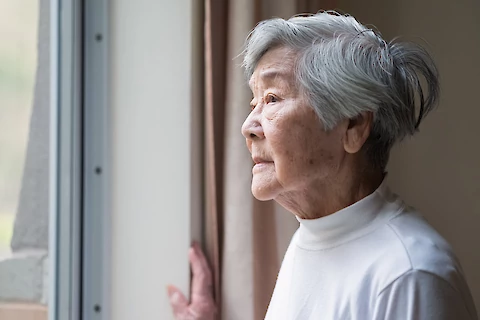
As winter starts to fade and the first signs of spring begin to appear, most people start feeling a sense of renewed energy and positivity. However, for some seniors, SAD symptoms may persist even as the days grow longer and brighter. If you're a caregiver or family member of a senior who has been struggling with SAD throughout the winter months, you may be understandably concerned if their symptoms don't seem to be improving with the arrival of spring.
Understanding Why SAD Symptoms May Not Change With Spring
Seasonal Affective Disorder typically affects individuals during the colder, darker months of the year. However, for some seniors, the symptoms of SAD may continue to persist even as the weather starts to improve. This can happen for a variety of reasons. These include chronic health issues, lack of social interaction, side effects from medications, or poor sleep habits. It's important to recognize that SAD can sometimes linger into the spring months. You can effectively support and care for your senior loved one during this period.
What to Do if Your Senior Relative's SAD Symptoms Don't Change With Spring
If you find that your senior relative is still struggling with SAD symptoms as spring approaches, there are several actions you can take to address the issue:
Bring It Up With a Doctor
As with any health concern, the first step should be to consult with a healthcare professional. Discuss your observations and concerns with their doctor. They can help determine if there are any underlying causes or if adjustments need to be made to their current treatment plan.
Try Not to Be Impatient With Senior Loved Ones
It's important to understand that recovering from SAD isn't always a quick or easy process. It's essential to approach your senior loved one with empathy and understanding. Avoid putting any undue pressure on them to "snap out of it" and instead, offer your support and encouragement.
Present Springtime Opportunities or Routines That Can Help
Encouraging seniors to engage in activities that promote well-being can be beneficial in overcoming SAD symptoms. Suggest outdoor activities, such as walks or gardening, which can help increase exposure to natural light. Encourage them to participate in hobbies or interests they enjoy but may have neglected during the colder months. Finally, promoting social interaction through visits, phone calls, or involvement in group activities can help alleviate a sense of isolation and loneliness that may contribute to SAD.
Additional Tips for Supporting Seniors With Persistent SAD Symptoms
In addition to the above suggestions, there are a few more strategies that can help support seniors experiencing persistent SAD symptoms:
Monitor and Track Symptoms
Keep an eye on your senior loved one's mood and demeanor. This can help you identify any patterns or triggers that may be contributing to their ongoing SAD symptoms. This information can also be helpful when consulting with their doctor about possible treatment adjustments.
Encourage a Healthy Diet and Regular Exercise
Eating well and staying active are both crucial in promoting overall mental and physical health. Encourage your senior loved one to maintain a balanced diet and engage in some form of regular physical activity. Both can have a positive impact on their mood and overall well-being.
Consider Seeking Professional Help
If your senior loved one's SAD symptoms continue to persist and interfere with their daily life, it may be worth considering the assistance of a mental health professional, such as a therapist or counselor. They can provide additional support, guidance, and coping strategies to help your loved one manage their symptoms.
Senior Helpers Racine Can Help Decrease Depression in the Elderly
It's essential to recognize and address the issue of SAD symptoms not improving with the arrival of spring in seniors. By being patient, supportive, and proactive, you can help your senior loved one navigate this challenging time and emerge feeling happier and healthier. If you're in the Racine, Kenosha, Union Grove, or Pleasant Prairie, WI areas and require assistance with senior care, don't hesitate to reach out to Senior Helpers Racine for professional support tailored to your loved one's unique needs. Our companionship services can go a long way toward reducing symptoms of depression and helping your senior loved one live a happier life.